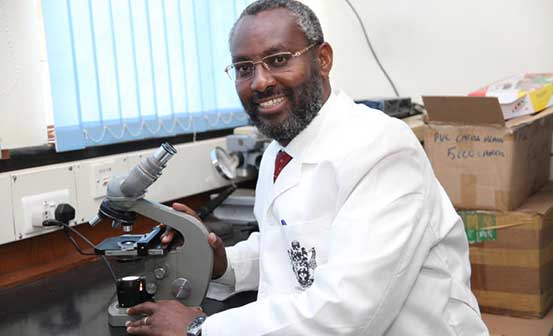×
The Standard e-Paper
Home To Bold Columnists

NAIROBI: Rising temperatures and disappearance of some animal species are all signs the environment is having a tremendous effect on human survival.
As past and current studies show that humanity’s daily actions threaten to destabilise the Earth’s key life support systems, one man is determined to continue with the dream of Nobel Laureate Wangari Maathai and do his little bit in bringing change by conserving what is left of our environment.